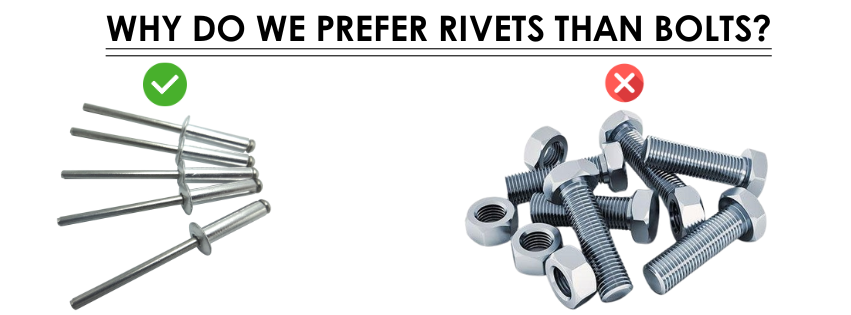When it comes to fastening two materials together, there are various options available in the market, such as rivets and bolts. However, many industries and professionals tend to prefer rivets over bolts for certain applications. But why is that? In this article, we will delve into the reasons why rivets are the preferred choice in many situations.

The Strength of Rivets
One of the main reasons why we prefer rivets over bolts in certain applications is because of their strength. Rivets are known for their ability to provide a tight and secure joint between materials, ensuring that the connection remains intact even under heavy loads or vibrations. This is especially important in industries where structural integrity is crucial, such as in aerospace or construction.
Ease of Installation
Another advantage of rivets is their ease of installation compared to bolts. When using bolts, you often need multiple components such as nuts and washers, which can make the installation process more time-consuming and complex. On the other hand, rivets only require a rivet gun to be installed, making the process quicker and simpler. This efficiency is valuable in industries where time is of the essence.
Manual Rivet Tools
Resistance to Corrosion
Rivets are also preferred over bolts in applications where corrosion resistance is a priority. Rivets are commonly made of materials such as aluminum or stainless steel, which are known for their resistance to rust and corrosion. This makes rivets a suitable choice for outdoor or marine applications, where exposure to moisture and harsh weather conditions is common.
Cost-Effectiveness
In many cases, rivets can be a more cost-effective option compared to bolts. While the initial cost of rivets may be slightly higher, the overall expenses can be lower due to the simplified installation process and the elimination of additional components like nuts and washers. This cost-effectiveness makes rivets a practical choice for industries looking to save on expenses without compromising on quality.
Conclusion
In conclusion, there are several reasons why we prefer rivets over bolts in certain applications. From their strength and ease of installation to their resistance to corrosion and cost-effectiveness, rivets offer a range of benefits that make them the preferred choice in many industries. By understanding the unique advantages of rivets, professionals can make informed decisions when selecting fastening solutions for their projects.